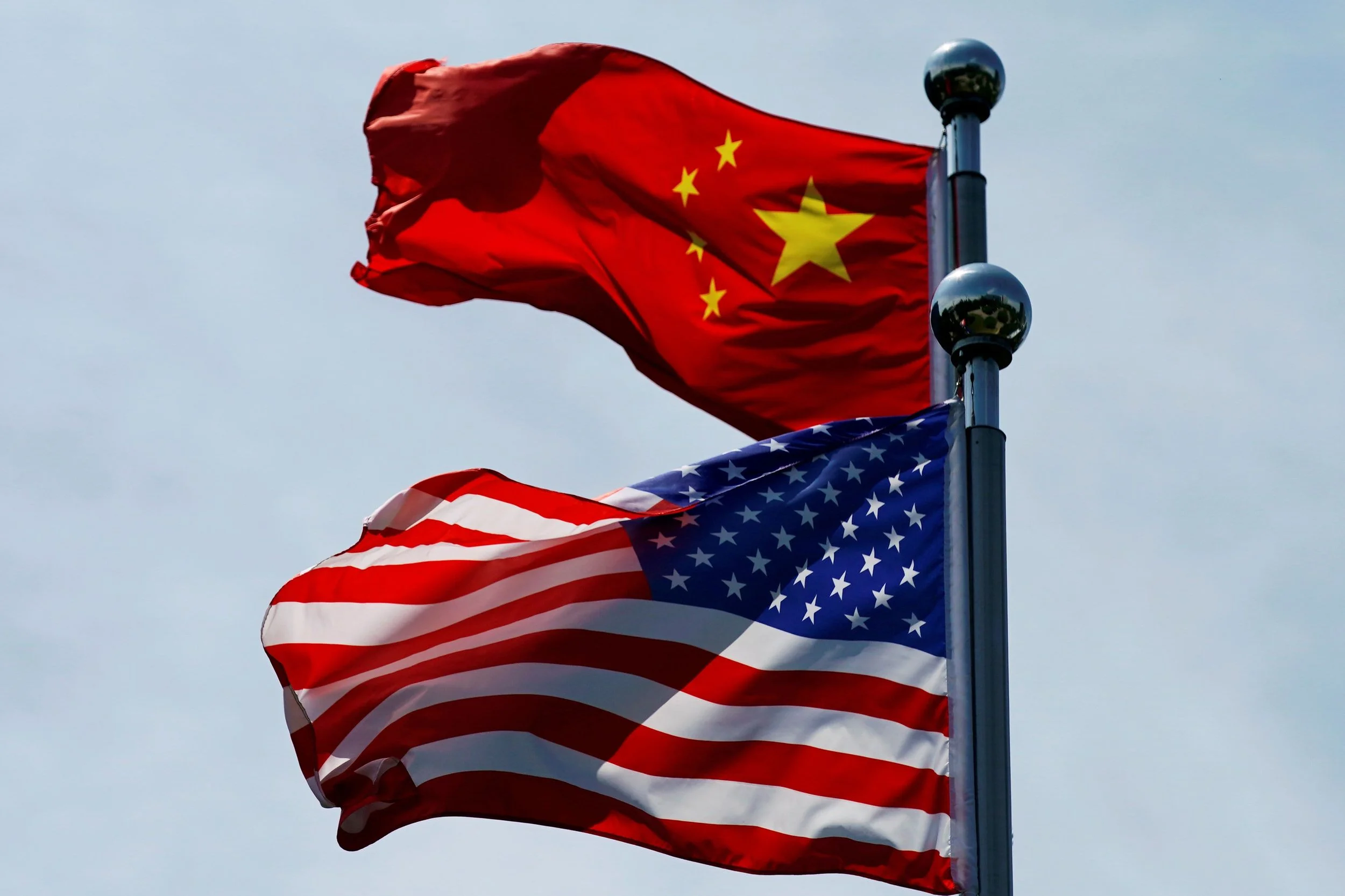2023 Agenda
Wednesday, April 12, 2023 | 10:00 AM - 5:30 PM
All times reflect Eastern Daylight Time (EDT)
-
Ambassador Stuart Holliday, CEO, Meridian International Center
-
As Ukrainians grapple with the challenges of an ongoing war, city leaders are demonstrating their unrelenting determination by turning their focus towards the future. Learning from the past and building on the present, mayors and municipal officials are leading efforts to revitalize their communities and construct more sustainable, modernized cities. This session addressed the status of the Ukrainian communities of Mariupol and Irpin, and, in the case of Irpin, their plans for what’s next. New survey data on what the citizens of Irpin believe is most important in the revival of their community was shared as we explored the intersection of leadership and resilience.
T.H. Vadym Boichenko, Mayor of Mariupol, Ukraine
T.H. Oleksandr Markushyn, Mayor of Irpin, Ukraine
T.H. Volodymir Karpliuk, Former Mayor, Irpin, Ukraine; Head of Irpin Reconstruction Summit
Diane Hoskins, Co-CEO, Gensler
Sofia Song, Global Cities Lead, Gensler
-
-
While U.S.-China tension at the national level is a serious impediment to global progress on our shared climate and environmental crises, avenues for cooperation and movement on climate targets remain ripe among American and Chinese cities. This conversation showcased current and previous sustainability partnerships between U.S. and China municipalities and explored paths that remain open for collaboration at the local level among public, private and civil society environmental leaders in biodiversity conversation, clean energy development, emissions reduction, climate adaptation and similar environmental arenas.
Moderator: Puru Trivedi, Vice President, Meridian International Center
T.H. Greg Nickels, 51st Mayor of Seattle, Washington (Virtual)
Lina Garcia, Director of International Affairs, U.S. Conference of Mayors (Virtual)
Li Zhu, Director of Conservation, Paulson Institute
Dr. Jennifer Turner, Director, China Environment Forum, Wilson Center
-
-
To introduce the main themes for this year’s Diplomacy Forum, this keynote session highlighted the importance of subnational diplomacy by drawing on the experiences of two internationally-minded mayors from the U.S. and Colombia. The conversation explored how these municipal leaders have positioned their cities internationally by demonstrating their capacity to engage in global initiatives that address shared challenges. It also offered insight into how cities are leading the way towards sustainable development by showcasing Bogotá’s Voluntary Local Review on the SDGs.
Moderator: Dr. Alyssa Ayres, Dean of Elliott School of International Affairs, George Washington University
T.H. Claudia López, Mayor of Bogotá, Colombia
T.H. Levar Stoney, Mayor of Richmond, Virginia
-
The Cities Summit of the Americas is a first-of-its-kind subnational diplomacy gathering that will assemble hundreds of state, city and community leaders from across the Americas for a three-day long conference in Denver, Colorado from April 26-28. Organized by the U.S. Department of State in partnership with the State of Colorado and the City of Denver, the Cities Summit seeks to ensure leader-level commitments made at the Ninth Summit of the Americas held last year in Los Angeles. The State Department Office of City and State Diplomacy highlighted some of the priorities and expectations surrounding the inaugural Summit, and detailed some of the key issues to be explored including climate and environment, energy transition, housing and safety, and democracy and inclusion.
Ambassador Nina Hachigian, Special Representative for City and State Diplomacy, U.S. Department of State
-
As cities and states in Europe, China, and elsewhere in the world expand their global reach through the establishment of international affairs offices, American municipalities are falling behind. This reality precludes U.S. local governments from securing the economic benefits of trade, investment, and tourism, while preventing their communities from weighing in on important global issues like climate change and migration. This session explored the international portfolios of subnational governments in the U.S. and around the world. It also addressed common barriers for local governments and officials interested in engaging globally, including sources of funding, metrics of success, and public apprehension.
Moderator: Maritza T. Adonis, Chief Executive Officer, MTA Visions Global CSR & Gov’t Relations
Ambassador Nina Hachigian, Special Representative for City and State Diplomacy, U.S. Department of State
Jean-François Hould, Director, Quebec Government Office in Washington
Alexis Roig, CEO, SciTech DiploHub
-
Mauricio Ramos, CEO, Millicom
T.H. Fred Hochberg, Vice Chair, Meridian International Center
-
-
There is growing realization that international organizations and national governments are unable to tackle the widespread social, economic, and environmental issues afflicting our planet alone. Community-level actions are needed as well. Cities around the world are answering this call, with mayors and municipal officials increasingly banding together to tackle global issues like climate change, democracy preservation, digital rights, and forced migration. This session explored the proliferation of city coalitions and their ability to collectively implement strategic actions and position cities as legitimate international actors within our global system.
Moderator: Emérita Torres, Vice President of Policy, Research and Advocacy, Community Service Society of New York
Alby Bocanegra, Founder, The Urban Futurist
Kate Johnson, Head of U.S. Federal Affairs, C40 Cities
Dorothy Kisaka, Executive Director, Kampala Capital City Authority (KCCA)
-
His Excellency Shaikh Abdulla Bin Rashid Al Khalifa, Ambassador of the Kingdom of Bahrain to the U.S. (pre-record)
-
While the CHIPS and Inflation Reduction Acts aim to boost American manufacturing and return more of the supply chain to the U.S., international trade and investment remain instrumental to maintain and build strong local economies. In fact, cities and states may increase their engagement with foreign governments through economic diplomacy as U.S. exports become more competitive. This session made the case for why international trade matters, while exploring how city and state officials can best aid the international ambitions of their local businesses and engage with international companies. It also highlighted different ways in which the Federal government supports municipalities in global trade amidst shifting supply chains and a new trade paradigm.
Moderator: P.J. Joshi, National Weekend Editor, Washington Post
Alexis Gordon, International Business Manager and Chief of Protocol, City of Charlotte
Yana Kravtsova, Executive Vice President, International Market Development and Public Affairs, Enviva
Jessica Reynolds, Senior Director, Office of International Investment and Trade, Maryland Department of Commerce
-
Global democratic backsliding has become a defining trend of the past decade with antidemocratic political projects most recently affecting countries like Hungary, Mexico, India, Brazil and Israel. In response, the Biden administration has formalized its commitment to advance democratic renewal at home and abroad through the Summit for Democracy. This conversation explored Governor Huntsman’s experience combating forces domestically and internationally that are adverse to democracy and democratic principles and highlighted his thoughts on how the U.S. can effectively strengthen democracy globally while dealing with a highly polarized population and an increasingly antagonistic international system.
Governor Jon M. Huntsman Jr., 2023 Meridian Democracy Strengthener Awardee
In conversation with Ambassador Stuart Holliday, CEO, Meridian International Center
-
Ambassador Stuart Holliday, CEO, Meridian International Center
The Rise and Growing Power of City Networks
There is growing realization that international organizations and national governments are unable to tackle the widespread social, economic, and environmental issues afflicting our planet alone. Community-level actions are needed as well. Cities around the world are answering this call, with mayors and municipal officials increasingly banding together to tackle global issues like climate change, democracy preservation, digital rights, and forced migration. This session will explore the proliferation of city coalitions and their ability to collectively implement strategic actions and position cities as legitimate international actors within our global system.
Local Engines Drive International Trade and Global Supply Chains
While the CHIPS and Inflation Reduction Acts aim to boost American manufacturing and return more of the supply chain to the U.S., international trade and investment remain instrumental to maintain and build strong local economies. In fact, cities and states may increase their engagement with foreign governments through economic diplomacy as U.S. exports become more competitive. This session will make the case for why international trade matters, while exploring how city and state officials can best aid the international ambitions of their local businesses and engage with international companies. It will also highlight different ways in which the Federal government supports municipalities in global trade amidst shifting supply chains and a new trade paradigm.
Going Global: Developing International Affairs Strategies for States and Municipalities
As cities and states in Europe, China, and elsewhere in the world expand their global reach through the establishment of international affairs offices, American municipalities are falling behind. This reality precludes U.S. local governments from securing the economic benefits of trade, investment, and tourism while preventing their communities from weighing in on critical global issues like climate change and migration. This session will explore the international portfolios of subnational governments in the U.S. and worldwide. It will also address common barriers for local governments and officials interested in engaging globally, including funding sources, success metrics, and public apprehension.
Cities Summit Preview
The Cities Summit of the Americas is a first-of-its-kind subnational diplomacy gathering that will assemble hundreds of state, city and community leaders from across the Americas for a three-day long conference in Denver, Colorado from April 26-28. Organized by the U.S. Department of State in partnership with the State of Colorado and the City of Denver, the Cities Summit seeks to ensure leader-level commitments made at the Ninth Summit of the Americas held last year in Los Angeles. The State Department Office of City and State Diplomacy will highlight some of the priorities and expectations surrounding the inaugural Summit, and detail some of the key issues to be explored including climate and environment, energy transition, housing and safety, and democracy and inclusion.
Sidestepping the Stalemate: U.S.-China Climate Partnerships at the Local Level
While U.S.-China tension at the national level is a serious impediment to global progress on our shared climate and environmental crises, avenues for cooperation and movement on climate targets remain ripe among American and Chinese cities. This conversation will showcase current and previous sustainability partnerships between U.S. and China municipalities and explore paths that remain open for collaboration at the local level among public, private and civil society environmental leaders in biodiversity conversation, clean energy development, emissions reduction, climate adaptation and similar environmental arenas.
Remembrance, Resilience and Revival
As Ukrainians grapple with the challenges of an ongoing war, city leaders are demonstrating their unrelenting determination by turning their focus towards the future. Learning from the past and building on the present, mayors and municipal officials are leading efforts to revitalize their communities and construct more sustainable, modernized cities. This session will address the status of the Ukrainian communities of Mariupol and Irpin, and, in the case of Irpin, their plans for what’s next. New survey data on what the citizens of Irpin believe is most important in the revival of their community will be shared as we explore the intersection of leadership and resilience.






